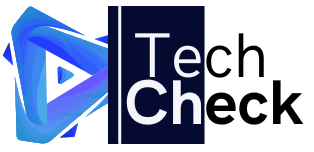The battle of the brains is ON! AI versus human intelligence – it's a clash of titans that's shaping our future. But who will win? The truth is, it's not a simple win-lose scenario. This isn't some Hollywood-style showdown; it's a complex dance of capabilities, limitations, and potential collaborations that will redefine what it means to be intelligent. Let's dive into the fascinating differences and surprising similarities between artificial and human intelligence.
Decoding the Differences: AI vs. Human Intelligence
Let's face it: humans are amazing. We have that magical blend of creativity, intuition, and emotional intelligence. We can grasp abstract concepts, make moral judgments, and experience empathy – things AI currently struggles with. AI, on the other hand, excels at speed, precision, and data processing. It can analyze vast datasets faster than any human team, identify patterns we might miss, and make predictions with uncanny accuracy. Think of AI as the super-fast calculator, while the human brain is the ingenious architect.
Human Intelligence: The Master of Nuance
Human intelligence is all about context. We understand subtleties, sarcasm, and unwritten social rules. We can adapt to novel situations and learn from our mistakes. Our intelligence is fluid, creative, and profoundly human. We excel at tasks requiring common sense, judgment, and ethical considerations. Think about writing a compelling blog post—that's a quintessentially human task.
Artificial Intelligence: The Speed Demon of Data
AI is a marvel of engineering. It’s incredibly efficient at processing data, identifying patterns, and making predictions based on those patterns. But AI's strength lies in its ability to perform repetitive tasks rapidly and accurately. This is why AI-powered systems are transforming industries like healthcare, finance, and manufacturing.
Unexpected Similarities: Where the Lines Blur
While there are clear distinctions, the lines between AI and human intelligence aren't always so sharp. Both systems learn, though in different ways. Humans learn through experience and education, absorbing and processing information. AI learns through algorithms and massive datasets, adjusting its performance to achieve specific goals. The ability to learn and adapt is a crucial shared trait, despite the vastly different learning processes.
The Power of Adaptation: A Shared Trait
Both AI and human intelligence have incredible adaptability. While humans adapt through life experiences and learning, AI algorithms adapt based on the data they process. Machine learning, a core principle in AI, enables algorithms to improve their performance over time based on new inputs. This continuous refinement and improvement mirror the adaptable nature of human intelligence.
Problem Solving: A Universal Skill
Humans and AI both tackle problems. Humans might use creativity and logic to solve a puzzle, while AI leverages its computational power and algorithms. Both methods use a form of logic and problem-solving techniques to achieve a certain objective. Problem-solving, albeit in different ways, is a fundamental aspect of both artificial and human intelligence.
The Future of AI and Human Collaboration
The future isn't about AI replacing humans but about the potential for powerful collaborations. AI can augment human capabilities, making us more efficient and productive. Imagine doctors using AI to make faster, more accurate diagnoses. Or writers leveraging AI tools to enhance their writing. The possibilities are endless!
Synergistic Partnerships: AI and Human Collaboration
The real power lies in synergizing human creativity and AI's computational abilities. This partnership can lead to breakthroughs in various fields—from scientific research to artistic expression. This isn't about pitting AI against humans; it's about creating a collaborative ecosystem.
Ethical Considerations: Navigating the New Frontier
The rapid advancement of AI demands careful ethical consideration. We must ensure that AI is developed and used responsibly, promoting fairness, transparency, and accountability. Balancing innovation with ethical guidelines is paramount as we navigate this uncharted territory. It's a challenge we must face together—humans and AI.
Ready to unlock the secrets of AI? Join our upcoming workshop and become an AI expert!








